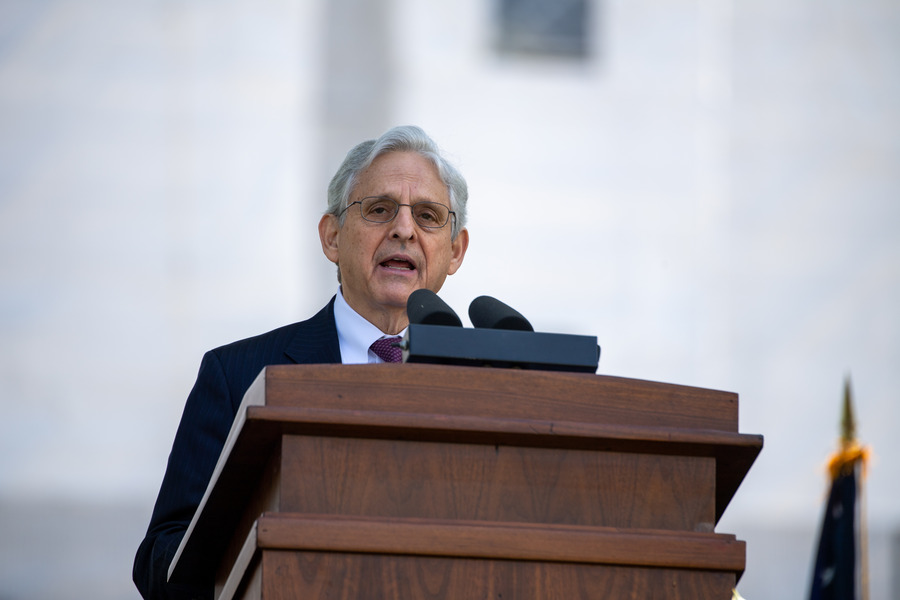The Special Obligation of the Advocates of Strong National Security Measures
Years ago, then-New Republic editor Michael Kinsley famously joked that he was going to change the name of the magazine to Even the Liberal New Republic, a quip on the uncomfortable frequency with which conservatives cited the magazine to support their views.
Published by The Lawfare Institute
in Cooperation With

Years ago, then-New Republic editor Michael Kinsley famously joked that he was going to change the name of the magazine to Even the Liberal New Republic, a quip on the uncomfortable frequency with which conservatives cited the magazine to support their views.
We feel Kinsley’s pain. Over the past few days, and indeed before that, we have both spoken out strongly against actions taken by the Trump administration and the promises and rhetoric of the campaign and transition. We have done so on any number of grounds: national security effectiveness, respect for the men and women of the intelligence community, concern for civil liberties and religious pluralism. And a lot of people seem surprised.
Indeed, one of us got a day-long glow of amazement from the Twitterverse when he tweeted that on today's issue—the refugee ban and airport detentions, in particular—he was siding with the ACLU.
We're surprised that so many are surprised. Those who advocate strong national security measures have a special duty to distinguish between tools that are necessary to the security of the country and policies that seem to be ideologically-driven impositions on the lives of the innocent. To the extent we advocate policies that may burden others’ lives—and we both have a certain comfort level with legitimate surveillance, detention, interrogation, and targeted killings—we have a special duty to speak up about policies that impose such burdens too broadly and without meaningful security benefit. To the extent we advocate policies that sometimes hurt people because those policies are, in our judgment, necessary, we have a special duty to call out policies that are neither necessary nor beneficial. To the extent we defend policies that people (wrongly, in our view) believe target Muslims, we have a particularly special duty to speak up against policies that actually do embody such discrimination.
This responsibility necessarily falls more heavily on people like us than it does on our civil libertarian and human rights-oriented friends, who harbor much broader suspicions of U.S. national security actions. After all, if you opposed much of what the Bush and Obama administrations did in the national security space, you are experiencing at least a little bit less discontinuity now with what President Trump and his administration are doing. For you, there was an unjustified security panic leading to authoritarian measures then; there’s just a bit more of one now.
By contrast, if you believe—as we do—that the baseline from which Trump is departing reflects a set of judgments, calibrated through experience, that seek to maximize security gain for the pains they impose and that they endeavor to do so without the taint of bigotry or demagoguery, one has a particular responsibility to explain why (to cite just one example) detaining innocent travelers and banning refugees crosses important moral lines.
Similarly, if you believe, as many civil libertarians and human rights advocates do, that many of the consensus tools of American counterterrorism are not merely objectionable but also ineffective, the violence the White House is doing to the architecture that develops and applies those tools is not really your problem.
But if you believe—as we do—that the national security community has formed a consensus around certain counterterrorism tools because they were effective, and that part of their effectiveness lay in the rejection of more extreme measures, the costs are much greater.
It follows that we believe that the White House is now doing violence not merely to cherished American values but also to the effectiveness of our counterterrorism operations, enforcement, and diplomacy, and demoralizing the men and women on whom we rely to carry out important work.
In other words, it’s not despite our belief in robust counterterrorism authorities that we feel so strongly about the steps the administration has taken and the many more it is promising.
It is not despite our belief that the United States needs powerful intelligence collection capabilities and the ability to target terrorists overseas with lethal force, nor is it despite our belief that controversial military detentions and drone strikes have a legitimate place in the American national security arsenal.
It is, rather, because we believe these things that we feel a special obligation to rigorously and publicly distinguish between the tools we advocate and measures we abhor.
The other day, Jack Goldsmith cheekily tweeted:
A major Donald Trump accomplishment: to get my progressive friends to better appreciate, respect, and defend the US intelligence community.
— Jack Goldsmith (@jacklgoldsmith) January 21, 2017
In response, the redoubtable Jameel Jaffer—who ran the ACLU’s national security litigation for years—responded:
Wonder if he's also made one-time cheerleaders for broad exec power better appreciate, respect civil libertarians. https://t.co/7FDrtjWOSq
— Jameel Jaffer (@JameelJaffer) January 22, 2017
Both are speaking to something very real here. But it is important to understand that, at least for many national security folks, the seemingly newfound appreciation for civil libertarianism is in no sense a recalibration of our judgments or a revisitation of our values.
It is an expression of them.




